Deborah J. Ross's Blog, page 135
January 25, 2014
A minor bit of brag
My post, Contrary Writing Advice: Don't Finish This Story!, which appeared earlier in this blog, has been reposted to the blog of Science Fiction Writers of America..You read it here first!
Happy writer smile, and wishes for many playful, delicious story beginnings to you all.
Happy writer smile, and wishes for many playful, delicious story beginnings to you all.

Published on January 25, 2014 10:22
January 20, 2014
Write What You Love
Larry Brooks interviewed best-selling author Philip Margolin on his latest book and a bunch of related writerly topic. This comment from Margolin struck home for me.

I think this is right on target. If you look at what's hot now, you're looking into the past. A traditionally published book often takes about a year from its acceptance to its appearance in bookstores. Many times the lead time is longer. The manuscript must be edited and revised, copy-edited, and proof-read. Cover art must be commissioned, sketches reviewed and approved, and cover designed. Sales teams need catalogs about six months in advance. That's not counting advance reading copies (ARCs) to review venues like Publisher's Weekly. Finally, the book must be printed and distributed so that it is available at your corner bookstore on or slightly before the release date.
Even with epublishing, which does not require the long lead times for preparation and distribution of the physical book, there is a gap between the finished product (which hopefully has been through a similarly-rigorous process of editing and proofreading, not to mention cover art and design!) and the initial conception of the author -- the decision to write this particular book. Writers vary in how long it takes to write a novel. This involves not only the speed of creating that first draft but on how much revision the draft needs. And how committed we are to making each book the very best we can, which means both learning our craft and not turning out hastily-written slip-shod work. For most of us, care requires time.
So the ebook or print book you see in the stories may have taken anywhere from 6 months to 6 years in creation. Who wants to be that far behind the times? More to the point, who wants to spend that much of your writing career imitating what someone else was excited about 6 years ago?
Fads will come and go, tastes will change with the seasons. Publishers merge or fold and even more arise. Wonderful books receive lousy promotional support and fizzle. Mediocre ones catch the public's fancy and make pots of money. We as writers have zilch control over any of this. I truly believe that chasing the market is not only futile, but deadly to our creative lives.
The only way to have a satisfying career is to write what you love. It is not enough to guarantee commercial success, but without it, you might as well take a job as an accountant. The paycheck's a whole lot more reliable.
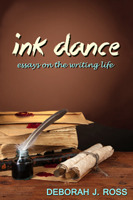 If you've enjoyed this essay on nourishing yourself as a writer, please check out my collection, Ink Dance: Essays on the Writing Life. It's filled with stories, advice, commiseration, and inspiration.
If you've enjoyed this essay on nourishing yourself as a writer, please check out my collection, Ink Dance: Essays on the Writing Life. It's filled with stories, advice, commiseration, and inspiration.

Don’t try to figure out what you must write to get published or make the bestseller list; write something that excites you. If you look at most first novels, even ones that aren’t particularly good, they all have a certain energy that comes from a writer getting an idea that excites them.
I think this is right on target. If you look at what's hot now, you're looking into the past. A traditionally published book often takes about a year from its acceptance to its appearance in bookstores. Many times the lead time is longer. The manuscript must be edited and revised, copy-edited, and proof-read. Cover art must be commissioned, sketches reviewed and approved, and cover designed. Sales teams need catalogs about six months in advance. That's not counting advance reading copies (ARCs) to review venues like Publisher's Weekly. Finally, the book must be printed and distributed so that it is available at your corner bookstore on or slightly before the release date.
Even with epublishing, which does not require the long lead times for preparation and distribution of the physical book, there is a gap between the finished product (which hopefully has been through a similarly-rigorous process of editing and proofreading, not to mention cover art and design!) and the initial conception of the author -- the decision to write this particular book. Writers vary in how long it takes to write a novel. This involves not only the speed of creating that first draft but on how much revision the draft needs. And how committed we are to making each book the very best we can, which means both learning our craft and not turning out hastily-written slip-shod work. For most of us, care requires time.
So the ebook or print book you see in the stories may have taken anywhere from 6 months to 6 years in creation. Who wants to be that far behind the times? More to the point, who wants to spend that much of your writing career imitating what someone else was excited about 6 years ago?
Fads will come and go, tastes will change with the seasons. Publishers merge or fold and even more arise. Wonderful books receive lousy promotional support and fizzle. Mediocre ones catch the public's fancy and make pots of money. We as writers have zilch control over any of this. I truly believe that chasing the market is not only futile, but deadly to our creative lives.
The only way to have a satisfying career is to write what you love. It is not enough to guarantee commercial success, but without it, you might as well take a job as an accountant. The paycheck's a whole lot more reliable.
 If you've enjoyed this essay on nourishing yourself as a writer, please check out my collection, Ink Dance: Essays on the Writing Life. It's filled with stories, advice, commiseration, and inspiration.
If you've enjoyed this essay on nourishing yourself as a writer, please check out my collection, Ink Dance: Essays on the Writing Life. It's filled with stories, advice, commiseration, and inspiration.
Published on January 20, 2014 13:22
January 17, 2014
Contrary Writing Advice: Don’t Finish This Story!
I love to take conventional wisdom and turn it on its head, following the tradition of rules are made
 to be broken but first you have to learn them. Beginning writers make mistakes. At least, I did, and I don’t know anyone who’s gone on to a successful writing career who didn’t. At some point, either a teacher or a more skillful writer points out, “Don’t do this” and why it’s a bad idea. Sometimes we figure it out for ourselves. I wonder if in the process of expunging our mistakes we also ignore that kernel of wisdom or inner creative impulse that led us to make the mistake in the first place.
to be broken but first you have to learn them. Beginning writers make mistakes. At least, I did, and I don’t know anyone who’s gone on to a successful writing career who didn’t. At some point, either a teacher or a more skillful writer points out, “Don’t do this” and why it’s a bad idea. Sometimes we figure it out for ourselves. I wonder if in the process of expunging our mistakes we also ignore that kernel of wisdom or inner creative impulse that led us to make the mistake in the first place.For example, we get told, “Avoid passive verbs, especially the verb to be.” But sometimes that is exactly the right verb and if we contort our prose to avoid it at all costs, we end up with…well, contorted prose.
The writing rule to Always Finish What You Start is equally worthy of a challenge, yet it rarely is. The rule is practically engraved in granite, creating a sense of obligation to slog through stories, no matter how much we’ve grown beyond them. We end up with trunk stories (stories that are so flawed as to be unsellable and are therefore relegated to the proverbial storage chest) when we could have been writing the very best new stories we’re now capable of. The second rule, to move on to something new, is a good one most of the time, as is the commiseration, Not every story succeeds. I’m all for taking risks in our writing with the understanding that we’ll occasionally go splat into the Quagmire of Drekness from time to time.
Is there any value to starting things we don’t finish? (Or allowing ourselves to not finish what we start?) That is, aside from dropping projects that just aren’t working and using our time and creative energy more productively? I think there is.
Beginning writers often have far more ideas than they can put into stories. We’re like kids in a candy store, with our minds hopping with images, bits of dialog, ultimately cool mcguffins, nifty plot twists, you name it. When we’re new, we don’t have the experience to sort out what’s prime story core material, what needs development, what needs a lot of development and a lot of structure before it stands a hope of becoming a story. So as beginners we dive into whatever strikes our fancy and end up with files and files of story beginnings. That’s a valuable part of the learning process, even if it is far from comprehensive. Later, when we know how to cultivate those ideas into stories that work, we can return to those sketches and openings as a treasure trove of ideas.
All this is well and good, but it centers on the content of the unfinished stories, not the process of beginning, and applies mostly to newer writers. Here are some thoughts on how unfinished stories benefit even seasoned writers.
First and foremost, that very first sentence is a killer for many of us, no matter how many books we’ve published. The Blank Screen (or page) represents the blank mind of the writer. Even if we have our story outlined to a fare-thee-well, finding our way into the first page of the first scene can be excruciating. What if we practiced beginning stories the way a musician practices scales? Instead of checking our email, we start our day with a new story – three to five pages, then stop. That’s all. Five to seven unfinished stories a week. What a concept! My bet would be that it would be awful at first, then delightfully freeing, then awful, then a breeze. What if we prepared to write that novel by writing three openings every day for a week? Would we end up gibbering in the corner? Or would the paralysis of the blank screen lose its power over us?
Another gift of unfinished stories is just plain play. When I was in high school, I must have started a new story a week, written a few pages, and then gone on to the next. I have a box of them somewhere and they’re not “treasure trove” material. But they were so much fun. I loved that feeling of opening a door to magic and adventure. Now, when I write mostly novels and I complete almost all of them, those moments of anticipation are few and far between. Yet I think they are important. They give us the joy of telling a shiny new story, of writing to please ourselves, of our connection to everything we find wonderful. Regardless of the quality of those opening paragraphs or whether they are of any use to us in the future, they tell our creative muse, “More! More!”
From time to time, I go through a bookstore, reading opening pages and noticing whether and when the story hooks me. This varies from genre to genre, of course. Something very literary is not going to have the same “grab ‘em” factor as a thriller. One of the things I struggle against in my own work is the tendency to start a story slowly. Sedately. I’ve developed various strategies to counteract this tendency, but I wonder if the exercise of just putting down story beginnings might be helpful in learning how to focus interest. If I know I have only a page (or three or five) and that’s it, adios, then I have to get what’s cool and exciting down on paper right away. I can’t wallow through a chapter of scene-setting or backstory. This is it: why I love this story and why you should read it. Instant query and pitch material!
So here’s to unfinished stories (and to finished ones, too!)
Image: The last page, unfinished, of the manuscript of the "Fuga a 3 Soggetti", from "The Art of Fugue" BWV 1080 by Johann Sebastian Bach, 1749. Don't you wish he'd finished it? I do!

Published on January 17, 2014 01:00
January 15, 2014
Sneak Peek: STARS OF DARKOVER cover!
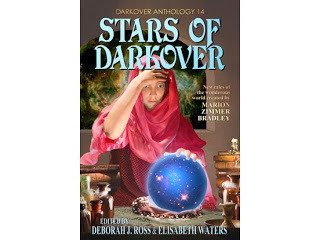
Table of Contents
All the Branching Paths by Janni Lee SimnerThe Cold Blue Light by Judith TarrKira Ann by Steven HarperThreads by Elisabeth Waters and Ann Sharp Wedding Embroidery by Shariann LewittThe Ridenow Nightmare by Robin Wayne BaileyCatalyst by Gabrielle HarbowyThe Fountain’s Choice by Rachel Manija BrownHouse of Fifteen Widows by Kari SperringZandru’s Gift by Vera NazarianLate Rising Fire by Leslie FishEvanda’s Mirror by Diana L. PaxsonAt The Crossroads by Barb CaffreySecond Contact by Rosemary Edghill and Rebecca FoxA Few Words For My Successor by Debra Doyle and James D.MacdonaldCover designed by Dave Smeds
Look for it in June 2014 in both ebook and print editions.

Published on January 15, 2014 01:00
January 14, 2014
BOOK RELEASE: Ink Dance: Essays on the Writing Life.
I've put together a collection of essays on writing - craft, survival, inspiration, career, and many other topics. Here it is, new from Book View Cafe! If you've enjoyed my blogs here, check it out!

A cup of inspiration, a dash of understanding, and a generous serving of wisdom for writers new and old. From the desk of writer and editor Deborah J. Ross comes a collection of warm, insightful essays on the writing life: including getting started, negotiating with the Idea Fairy and creating memorable characters, writing queries, surviving bad reviews, dealing with life’s interruptions, confronting creative jealousy, and nourishing yourself and your creative muse.
It's available in epub and mobi versions (so you can read it on your Kindle or Nook, as well as other ereaders) and you can download a sample chapter. Only $2.99.

A cup of inspiration, a dash of understanding, and a generous serving of wisdom for writers new and old. From the desk of writer and editor Deborah J. Ross comes a collection of warm, insightful essays on the writing life: including getting started, negotiating with the Idea Fairy and creating memorable characters, writing queries, surviving bad reviews, dealing with life’s interruptions, confronting creative jealousy, and nourishing yourself and your creative muse.
It's available in epub and mobi versions (so you can read it on your Kindle or Nook, as well as other ereaders) and you can download a sample chapter. Only $2.99.

Published on January 14, 2014 09:46
January 13, 2014
I Can Haz Bragtiime Now?
Over on The Book Smugglers, Andrea K. Host offers a grand and rich list of women writers of science fiction and fantasy. And she included me!
Here's what she says about my work:
I am majorly stoked.
Here's what she says about my work:
Under the name Deborah Wheeler there are two science fiction novels: Jaydium (combining time travel and possibility) and the planetary adventure Northlight (where aranger in exile tries to track down a lost friend and discovers layers of conspiracy).
As Deborah J Ross, along with a number of books in Marion Zimmer Bradley’s Darkover world, the author has recently embarked on a grandly epic fantasy series revolving around a broken shield that is the key to keeping the whole world in one piece.
I am majorly stoked.

Published on January 13, 2014 15:10
January 9, 2014
Azkhantian Tales - More Ebook editions
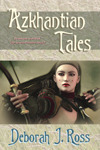 My short story collection, Azkhantian Tales is now available from Barnes & Noble and Amazon.com. (And from Book View Cafe, the original publisher!)
My short story collection, Azkhantian Tales is now available from Barnes & Noble and Amazon.com. (And from Book View Cafe, the original publisher!)Across the Azkhantian steppe, warrior women ride to battle against foes both human and supernatural. From the world of The Seven-Petaled Shield come four fantasy tales, originally published in Marion Zimmer Bradley’s Sword & Sorceress.
Prophecy links a mother and daughter in an unbreakable bond.
A young woman defies tradition to become a shaman.
When twins are magically divided, the survivor searches for the other half of her soul.
A warrior woman discovers that to wield a magical blade dishonorably carries a heavy price.
This collection includes a previously-unpublished Introduction.Only $1.99!

Published on January 09, 2014 14:36
J. R. R. Tolkien on Fantasy
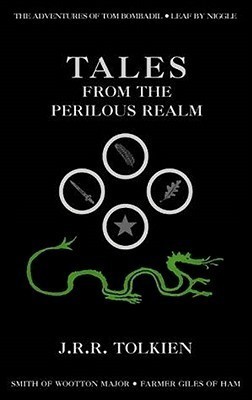 A lovely quote, worth re-reading over time:
A lovely quote, worth re-reading over time:Recovery (which includes return and renewal of health) is a re-gaining—regaining of a clear view. I do not say “seeing things as they are” and involve myself with the philosophers, though I might venture to say “seeing things as we are (or were) meant to see them”—as things apart from ourselves. We need, in any case, to clean our windows; so that the things seen clearly may be freed from the drab blur of triteness or familiarity—from possessiveness. Of all faces those of our familiares are the ones both most difficult to play fantastic tricks with, and most difficult really to see with fresh attention, perceiving their likeness and unlikeness: that they are faces, and yet unique faces. This triteness is really the penalty of “appropriation”: the things that are trite, or (in a bad sense) familiar, are the things that we have appropriated, legally or mentally. We say we know them. They have become like the things which once attracted us by their glitter, or their colour, or their shape, and we laid hands on them, and then locked them in our hoard, acquired them, and acquiring ceased to look at them.
[…]
Creative fantasy, because it is mainly trying to do something else (make something new), may open your hoard and let all the locked things fly away like cage-birds.
The whole article is here.

Published on January 09, 2014 11:33
January 6, 2014
GUEST POST: Mary Rosenblum on How To Handle Bad Reviews
 Paul KleeWhat do you do when you get the really nasty review?
Paul KleeWhat do you do when you get the really nasty review?You know, we don't teach writers about reviews and reviewers and we should. Everybody thinks of 'good' and 'bad' writing as a standard. If it's 'good' editors and readers will love it! If it's 'bad' nobody will publish the story and readers will hate it. Alas, that mean that many authors who had a really good story felt like failures when they couldn't sell it to a publisher, when it was a matter of simply not suiting the publisher's target audience. The quality of the book was excellent, the publisher felt it wouldn't get the huge numbers of sales they needed in order to show a profit.
Self-publishing has let authors take their stories directly to readers and they vote with their mouse-clicks. You either sell or you don't, but we all know that it's a bit of a slow process at first, that self-publishing is all about the long tail. Meaning your sales are probably not stellar at first, with only one or two books out. So, the feeling of 'success' or 'failure' gets put on hold. Gotta wait to see how many people like it…
Enter the reviewers.
We love Authority. Authorities Know A Lot. Authorities Pass Judgment and They Are Gods. Reviewers Are Authorities And Therefore, They Are Gods.
Really?
You know what? That has never ever ever been the case. Reviewers are people who are willing to read lots and lots of books quite quickly and write down a judgment about the quality of that book to meet a regular deadline. You know what skills are involved? You must be able to read and you must be able to write a relatively coherent commentary and -- most importantly -- do that on a daily, weekly, or monthly basis, reliably.
See anything missing? How about a 'standard of excellence' or some other measuring tool so that you can effectively winnow 'good' from 'bad'? Don't see one, do you? You can become a reviewer. You should become a reviewer. It's a great way to meet new potential fans. One of my clients, from prison, has become a regular reviewer for a large circulation magazine.
Reviewers express their opinions. Their opinions. Remember that lacking 'standard of excellence'? Keep it in mind here. Some reviewers only review books they like, others review books they don't like. And the reasons they don't like them may have nothing to do with lots of other people liking your book. Mr. Reviewer may hate cats and is disposed to pick holes in any story that features a cute cat as a player. So your cozy mystery with the Miss Marple type sleuth who owns a cat gets picked to pieces. Will Mr. Reviewer come out and say 'I hate stories with cats'? No, of course not. How unprofessional! But he got even with you for putting that silly feline in there, didn't he? He called your cozy mystery weak, with an obvious ending.
And it really isn't weak and most readers are surprised by your clever ending.
Should you slit your wrists?
Messy and really, a waste of perfectly good future books, in my opinion. Relatively few readers read any one review. Really. Yes, it seems as if you have just been put up on the six o'clock news stark naked, but that's just your perception. If every reviewer comments on your weak plot, I would sure pay attention! But that one snarky or nasty review isn't going to hurt you. Really it will not.
The nastiest review I got, one where the reviewer strongly implied that I was an exploitive white writer using native culture frivolously, won the top award in its genre later on. Take that, snarky, nasty reviewer who clearly didn't bother to even read the end of the story! Bleah!!!!
Did that sting at the time? Oh, you BET it stung! And that accusation of racial non-political-correctness was not a good thing to have kicking around, career-wise, either. I was furious, hurt, ready to kill the jerk…
What did I do?
Nothing.
YOU CANNOT DO ANYTHING.
Read that again. Repeat it to yourself. Look at all the libelous 'news' in those tabloids you see at the end of the supermarket checkout counter, accusing celebrities of everything from incest to consorting intimately with aliens. Do those celebrities ever sue? No, of course not. To even acknowledge that silliness is to give it weight.
If you comment on a reviewer's post, you will hurt yourself professionally. YOU WILL HURT YOURSELF PROFESSIONALLY.
YOU WILL HURT YOURSELF PROFESSIONALLY
The review itself, painful as it seems at the time, will vanish into the murky waters of the online world and eventually it won't even surface when someone googles your specific title. Sorry, folks. Enjoy the glowing reviews, shrug off the lukewarm ones, and be prepared to live with the snarky and nasty ones that you WILL get from time to time. Readers are not stupid. If you have ten really positive reviews on various sites and one 'flyer' who wails that this is totally unreadable, whom do you think readers will take more seriously? Yeah, maybe those are all your friends and you paid them to write those glowing reviews, but probably not all are paid friends. They outweigh the wail.
Live with it.
You have to.
Ahem…I have found that there is a certain…er…comfort in venting some of that hurt and fury in a less personally damaging way than responding in the heat of the moment, online. Breaking something that you need to recycle anyway is one good method. Personally, I like a very sharp axe and some rounds of wood that need to be split for firewood. There is something so pleasantly violent in a well sharpened axe.
I will leave my imaginings to your own imaginations.
But the wood burns nicely in my woodstove and warms the house!
Welcome to the real world of writing and reviews. Hey…it means you ARE a writer, you know!
----------------
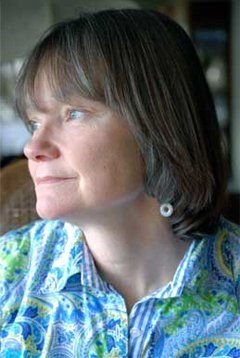 An award-winning author of New York published Science Fiction and mystery novels as well as dozens of short stories, Mary Rosenblum began teaching writing fifteen years ago, mentoring student authors through the writing and publishing process. Now, as the Literary Midwife at New Writers Interface, she still helps novice authors navigate safely through the process of publishing today, and teaches them how to promote their books effectively in today’s brave new publishing world.
An award-winning author of New York published Science Fiction and mystery novels as well as dozens of short stories, Mary Rosenblum began teaching writing fifteen years ago, mentoring student authors through the writing and publishing process. Now, as the Literary Midwife at New Writers Interface, she still helps novice authors navigate safely through the process of publishing today, and teaches them how to promote their books effectively in today’s brave new publishing world. You can find her books on writing here.

Published on January 06, 2014 01:00
January 4, 2014
Nice review of COLLABORATORS
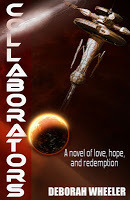 Starship Reckless offers a thoughtful pairing of novels from 2011/2012 and now. Collaborators was one of the current novels discussed.
Starship Reckless offers a thoughtful pairing of novels from 2011/2012 and now. Collaborators was one of the current novels discussed.Collaborators shows how a non-terrestrial culture interacts with a stranded human starship whose crew, bolstered by its formidable technology, forgets that they are not gods and interfere heavily in the politics of two adversarial nations. The major conflict is nuanced by ambiguities and dilemmas on all sides and at many levels.
Wheeler’s Quaker beliefs are visible (including the refusal to indulge in charismatic saviors) and the parallels to the havoc wrought by imperial-nation interventions on earth are clear. The alien biology and first-contact dynamics are handled unusually deftly; the narrative polyphony weaves complex melodies and harmonies. Wheeler’s world is effortlessly immersive and teems with fully realized characters.
(For those of you new to this blog, Deborah Wheeler was my former name and I still use it for novel-length science fiction. Although I am married to a Quaker and attend Meeting, I am myself not a member.)

Published on January 04, 2014 15:43



